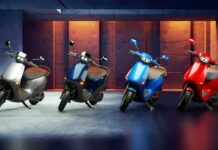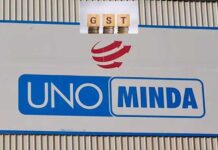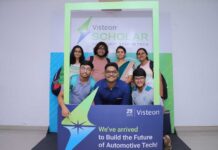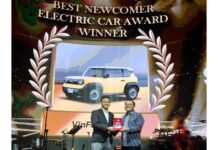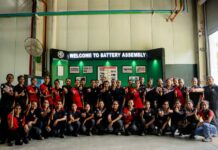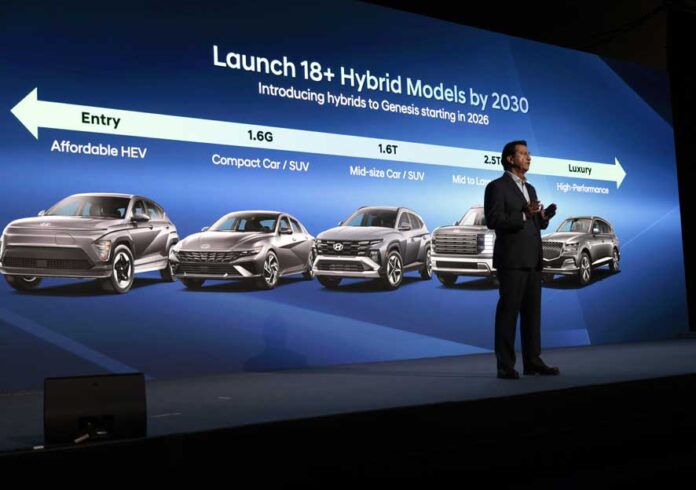
Hyundai Motor Company revealed its boldest growth strategy to date during its first-ever CEO Investor Day held outside Korea. The event marked a significant milestone, providing a platform to share the company’s mid- to long-term roadmap with global investors and stakeholders.
Speaking in New York, CEO José Muñoz detailed Hyundai’s transformation into a global mobility leader, driven by strategic product diversification, cutting-edge electrification technologies, and advanced software-defined vehicle capabilities designed to redefine the future automotive experience. The company also emphasized its focus on manufacturing excellence and innovation as key pillars of this vision.
“In an industry facing unprecedented transformation, Hyundai is uniquely positioned to win through our unmatched combination of compelling products, manufacturing flexibility, technology leadership, outstanding dealer partners and global scale,” said José Muñoz, President and CEO of Hyundai Motor Company. “We are delivering comprehensive electrified portfolios across all segments, localizing production in key markets, and leveraging breakthrough technologies from Software-Defined Vehicles to next-generation batteries. Our ability to adapt quickly, combined with the power of Hyundai Motor Group’s 50+ affiliates and our unwavering commitment to customers, will enable us to continue unlocking tremendous value for our stakeholders. It’s a great time to be with Hyundai.”
Hyundai Motor reaffirms its commitment to achieving 5.55 million global vehicle sales by 2030. Building on this momentum, electrified vehicles are expected to account for 60 percent of total sales, reaching 3.3 million units, with significant growth anticipated in North America, Europe and Korea.
Hyundai plans to expand its hybrid lineup to over 18 models by 2030, including Genesis hybrids starting in 2026. The upcoming Hyundai Palisade Hybrid will feature advanced TMED-II technology for improved performance and efficiency.
Additionally, Hyundai will enter the mid-size pickup truck segment in North America before 2030, building on the success and insights gained from the Santa Cruz, launched in 2021.
Hyundai Motor’s EV strategy emphasizes region-specific models to meet local market needs. Key launches include the IONIQ 3 for Europe, India’s first locally designed EV with a localized supply chain, and China-exclusive models—the Elexio SUV and a C-segment electric sedan.
These additions will complement Hyundai’s existing EV lineup (IONIQ 5, 6, and upcoming 9) to offer diverse options globally.
From 2027, Hyundai will introduce Extended Range EVs (EREVs) with over 600 miles of range, using in-house high-performance batteries. These EREVs will offer full EV-like performance with less than half the battery capacity, balancing range, cost, and accessibility.
The N performance EV lineup will grow to 7+ models by 2030, targeting 100,000 global sales. The IONIQ 6 N will showcase advanced thermal management and signature N driving tech.
In commercial vehicles, Hyundai will expand in North America with XCIENT Fuel Cell Trucks, Hyundai Translead trailers, and electrified large vans, supporting eco-friendly logistics through its existing production infrastructure.
Hyundai Motor is driving global manufacturing innovation through its Software-Defined Factory strategy, with major investments and automation upgrades across key facilities.
- Hyundai Motor Group Metaplant America (HMGMA) in Georgia will reach 500,000-unit capacity by 2028, focused on hybrid and EVs, supported by a $2.7B investment and creating 3,000 jobs.
- By 2030, Hyundai aims to produce 80% of U.S. vehicle sales domestically, increasing local supply chain content from 60% to 80%.
- Global production will expand by 1.2 million units, including:
- 500,000 from HMGMA (USA)
- 250,000 from Pune, India
- 200,000 from Ulsan EV plant, Korea
- 250,000 from CKD sites in Saudi Arabia, Vietnam, North Africa, and others
- The Saudi Arabia plant, launching in Q4 2026, will produce 50,000 units with advanced robotics under the “Saudi Made” initiative.
Advanced automation and software-defined systems will enhance production efficiency and flexibility. The Ulsan EV plant will build up to 12 EV models using predictive maintenance and digital simulations, while HMGMA will produce 10 hybrid and EV models.
Boston Dynamics technologies will further enable intelligent automation, human-robot collaboration, and robotics applications across manufacturing, logistics, infrastructure, and mobility.
Hyundai Motor: Advanced Technology Acceleration
Battery Innovation & Safety
Hyundai is advancing battery technology with a focus on durability, cost-efficiency, and safety. By 2027, targets include:
- 30% cost reduction
- 15% higher energy density
- 15% faster charging times
Real-world data from 50,000+ IONIQ 5 units shows over 90% battery health retained, even after 250,000+ miles. Hyundai’s Battery Management System (BMS) provides real-time diagnostics, with cloud-based BMS launching in 2026 for enhanced predictive maintenance. Safety is reinforced with multiple protective layers against thermal events.
Fuel Cell Leadership
With 73,000+ fuel cell EVs sold, Hyundai is developing next-gen fuel cell systems for commercial use, focusing on high durability and power output.
Software-Defined Vehicles (SDVs)
Hyundai is transitioning to SDVs via its Computing & I/O Domain Architecture (CODA), separating hardware from software for greater flexibility and scalability. Key enablers include:
- High-Performance Vehicle Computer (HPVC)
- Zone controllers for reduced wiring and hardware needs
At the core is Pleos, a next-gen vehicle operating system enabling:
- Rapid updates
- Feature customization
- Enhanced safety and scalability
Hyundai will launch Pleos Connect infotainment in Q2 next year, featuring:
- Multi-window UI
- User-based personalization
- In-car app marketplace
AI Integration
Hyundai’s SDV vision is powered by AI:
- Atria AI: Enables autonomous driving without detailed maps
- Gleo AI: Voice-based vehicle interaction
- Capora AI: Fleet optimization via large-scale data analytics
These innovations enhance vehicle intelligence, user experience, and operational efficiency.
Genesis, Hyundai’s luxury brand, celebrates its 10th anniversary with over 1 million global sales and sustained double-digit profit margins across 20+ markets.
By 2030, Genesis targets 350,000 annual sales, expanding in the U.S., Europe, Middle East, Korea, China, and emerging markets.
Key product highlights include:
- Luxury SUVs: X Gran Equator, Neolun
- Emotional halo models: X Gran Coupe Concept, Magma Halo
- Ultra-bespoke vehicles to enhance luxury appeal
Genesis will debut Magma Racing in the FIA World Endurance Championship (2026) and IMSA SportsCar Championship (2027), applying racing tech across its lineup.
Future models will feature:
- Multi-energy platforms
- Software-Defined Vehicle (SDV) architecture via CODA
- U.S.-based production and EREV launches
All while retaining Genesis’ hallmark refined, agile driving experience.
Strategic Partnerships & Ecosystem Expansion
Hyundai Motor is advancing its market presence and tech development through key partnerships:
- Waymo: IONIQ 5 prototypes with fully autonomous driving tech are now undergoing public road testing in the U.S., marking a major step in Hyundai’s self-driving ambitions.
- General Motors: Strategic alliance to co-develop five new vehicles, launching as early as 2028. Projected to reach 800,000 annual sales, including electric vans, compact vehicles, SUVs, and trucks for the Americas.
- Amazon Autos: Enhancing brand visibility and customer reach through online retail, while improving dealer profitability with new financing options and accessories.
Financial Strategy & Investment Plans
At the CEO Investor Day, CFO Seung Jo (Scott) Lee outlined Hyundai’s financial roadmap:
- Revenue growth forecast raised by 5–6%, while operating profit margin (OPM) revised to 6–7% (down 1 pt) due to new U.S. tariffs.
- Announced a KRW 77.3 trillion (approx. $57B) investment from 2026–2030, including:
- KRW 30.9T for R&D
- KRW 38.3T for CAPEX
- KRW 8.1T for strategic investments
- KRW 15.3T earmarked to expand U.S. production capacity and build a robotics ecosystem, part of a broader $26B U.S. investment.
- Targets a 7–8% OPM by 2027 and 8–9% by 2030, driven by localization, hybrid and Genesis sales, and cost efficiency.
Shareholder Returns
- Committed to a Total Shareholder Return (TSR) of 35%+ from 2025–2027, through a mix of dividends, share buybacks, and treasury stock cancellations.
- Minimum Dividend Per Share (DPS) set at KRW 10,000.
CEO José Muñoz concluded: “We’re not just adapting to change – we’re leading it. Our electrification push, software-defined vehicle innovation, manufacturing excellence, and customer-first approach are shaping the mobility company of the future.”

